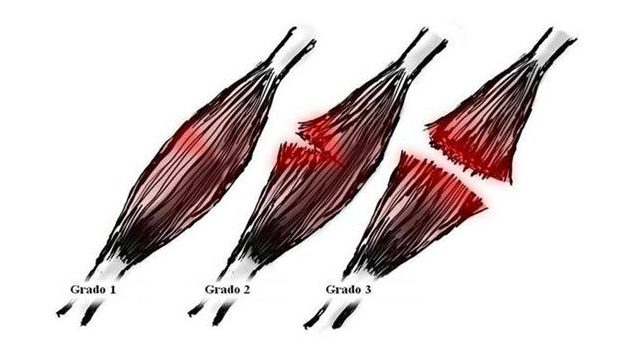Have you ever wondered what was that sudden onset of pain or tenderness felt right after lifting a heavy box off the floor? Or after getting tackled while playing with your kids? Or maybe you had an “Oh no” moment right after performing a physically demanding task?
That is what you would call a muscle strain, a.k.a. “pulled muscle” or “muscle tear”, which occurs when a muscle experiences physical trauma from being overstretched. This can occur from overuse, fatigue, or even improper use of that muscle. In most cases, only a few muscle fibers are overstretched or torn, thus the muscle remains strong and intact. Depending on the severity of the strain, you may experience some symptoms such as soreness, limited range of motion, muscle spasm, and bruising at the affected area. If the strained muscle is severe, it will not only limit the affected muscle(s) function but also greatly reduce the overall strength of the muscle.
We classify the severity of the strain based on three grades:
- Grade I (Mild): Only a few muscle fibers are torn or stretched. The muscle may be tender or painful, but strength will remain norma These injuries take about 2-3 weeks to heal, depending on the affected muscle region.
- Grade II (Extensive): A greater number of muscle fibers are involved but not ruptured. The pain is more severe with a significant loss of strength and movement. These injuries take a few months to heal depending on the affected muscle region.
- Grade III(Complete rupture): The muscle is completely torn all the way through or sheared away from its tendon. Grade III strains cause a complete loss of muscle function as well as considerable pain. You can palpate a defect at the muscle or tendon with swelling and tenderness present. These injuries take much longer to recover from and may even require surgery to reattach the affected muscle and tendon.

To sum it up, the more muscle fibers that undergo physical trauma, the worse the strain will be. A misconception we tend to hear is that only extreme and rigorous exercise causes muscle strains. Walking, jumping, lifting something heavy or in an awkward position, or even throwing a pebble can cause an acute muscle strain.
We tend to see more acute muscle strains during colder weather because muscles are not properly warmed up before an activity is usually performed. You can basically strain any muscle in your body, but some muscles are more susceptible than others; especially muscles involved in explosive motions such as the calf, hamstring and groin.
Repetitive movements can cause chronic muscle strains especially in sports like tennis, golf, and baseball. Even poor posture over time will cause muscle strains. So as you’re reading this, sit up straight and tall, pull your shoulders back, and keep your head leveled with your monitor! Refer to our blog post on good posture here.
Here are some preventative measures you should take to avoid a muscle strain! Good habits you can start developing include having a good posture while you are sitting and standing, lifting heavy loads correctly, and properly warming up with a dynamic stretch routine before engaging in sports and other rigorous activities. Other measures you can take would be strengthening your muscles properly, and gradually and appropriately increasing the intensity of your training program. Learn about the differences between static and dynamic stretching here.
What to do when you suspect a muscle strain? Before you start googling and using WebMD to self-diagnose yourself, follow the RICE rule which is extremely effective in acute injuries:
- Rest the injured muscle
- Ice the involved area to reduce swelling
- Compress the affected area
- Elevate the affected limb
Also, over the counter medication such as acetaminophen (Tylenol) and nonsteroidal anti-inflammatory drugs (such as ibuprofen, Advil, Motrin, etc.) will temporarily relieve the symptoms. Once you get rid of pain and inflammation, functional physical therapy will help strengthen the affected muscles and regain the range of motion loss.
Muscle sprains are extremely common and they are a pain to deal with especially if you have an active lifestyle. Maybe you need to get better for an upcoming trip or just need to return to your physically demanding job. But don’t worry, because we’re offering free consultations at Core Performance PT to assist you in your road to recovery!

Comments